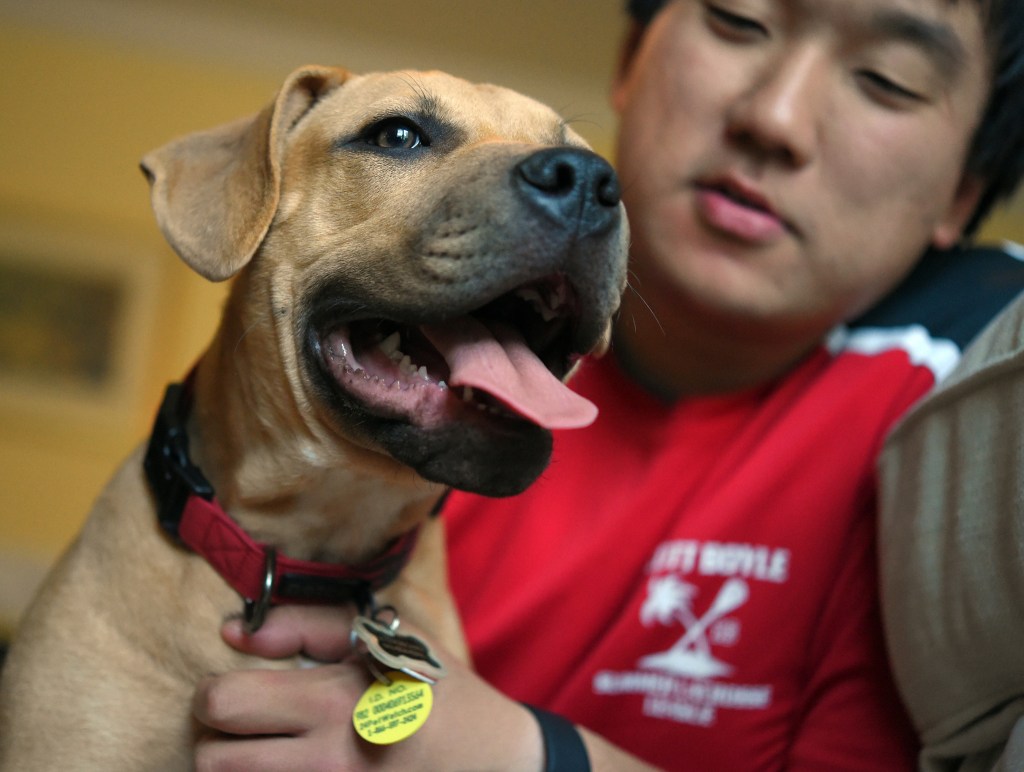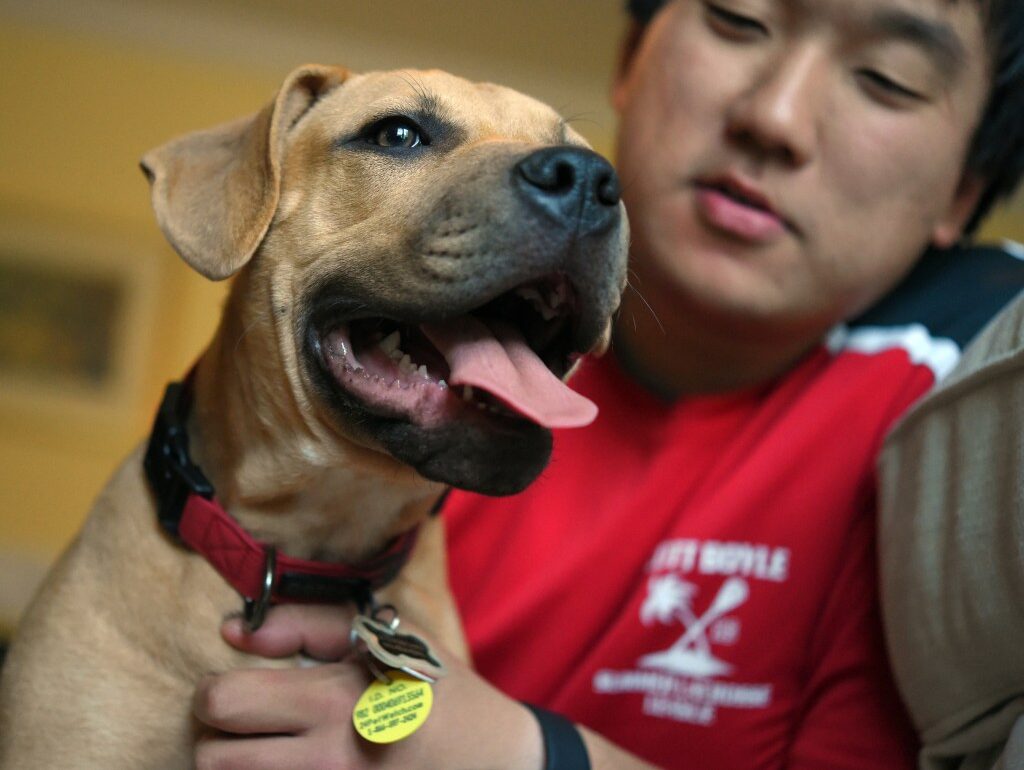
Two months ago, my spouse and I saved a life. We adopted our second rescue dog, Juju, mere hours before he was scheduled to be euthanized at an animal shelter in Prince George’s County.
When I saw Juju’s picture with the headline “urgent” on a local rescue group’s social media page, I was confident we had found our newest four-legged family member. How could I resist those sweet brown eyes and boop-able snout?
Instead of being sentenced to death by no fault of his own, Juju now spends his days playing with his sister, Ellie, enjoying all the treats and snuggling up for endless cuddles.
Like his sister, whom we adopted in 2022 from the Humane Rescue Alliance in Washington, D.C., Juju was abandoned in an urban area and found severely malnourished with clear evidence of mistreatment.
Shelter staff surmised that he had been confined for most of his short life as his paws were bloodied and splayed in a condition known as crate feet, common among dogs forced to stand atop the bare metal grate of their cage for hours on end.
Years earlier, Ellie was discovered under similar circumstances. Veterinary staff estimated she had recently given birth to her sixth litter and was dumped in an industrial zone in D.C. shortly after that.
As a life-long animal lover and advocate, I know Juju’s and Ellie’s stories are not unique. Hundreds of thousands of animals needlessly suffer every year in America by abuse, neglect or antiquated commercial practices.
While taking on this institutionalized cruelty might seem overwhelming, there are tangible solutions that our local officials can take to stop animals in our area from needlessly suffering.
Prince George’s County Executive Angela Alsobrooks and the county council can repeal the county’s 27-year-old breed-specific legislation (BSL). Prince George’s County is one of several jurisdictions nationwide with a BSL that bans pit-bull ownership, adoption or fostering within the community.
Breed restrictions target dogs such as pit bulls, rottweilers and others perceived as dangerous, aggressive or erroneously believed to be prone to attacking dogs or humans. The foundation of BSL relies on stereotypes about dog breeds and their behavior. Moreover, determining a dog’s breed, typically done through a visual inspection, can be wildly inconsistent among shelter staff and animal control.
A DNA test, a tool underfunded shelters often lack the time or resources to administer, can accurately determine a dog’s breed but is rarely used to assess it.
Dogs should be judged by their behavior, not their appearance. And even then, the behavior exhibited by a scared dog in a stressful shelter environment may not accurately represent a dog’s true temperament.
For hundreds of dogs like Juju in Prince George’s County, being labeled as a pit bull, whether accurate or not, can be a literal death sentence.
For years, local rescue groups like the one that posted Juju’s urgent plea for adoption have put out weekly calls urging eligible residents living outside Prince George’s County and rescue organizations to save dogs in the county from euthanasia.
One of BSL’s many negative consequences is that it has led to chronic overcrowding at shelters in D.C., Maryland and Virginia, where overburdened and under-resourced shelter staff must make difficult decisions about the fate of the animals in their care.
Following the COVID-19 pandemic, many shelters have been at capacity because owners have surrendered pets at record numbers as they transition from remote to in-person work. Others can no longer afford a pet in this challenging economy.
Then there are dogs like Ellie, most likely used in an illegal breeding operation, discarded once she had served her purpose.
Shelters are struggling to adopt animals at a rate equal to the number of animals they are receiving, and more animals keep arriving, making that task nearly impossible.
Every week, local rescue groups share photos and stories of dozens of dogs placed on the Prince George’s County Animal Shelter’s list of dogs at risk of being euthanized. This month, rescue volunteers saw one of the largest urgent lists in Prince George’s County since the overcrowding crisis began, with 34 dogs at risk of euthanasia.
To be clear, there is nothing wrong with these dogs. They are at risk for euthanasia simply because shelter space is limited and they have been labeled as pit bulls, an illegal breed in the county.
I have seen dogs in the shelter for less than a month placed on the at-risk list. Many of these at-risk dogs seem to barely make it out alive. When the pool of potential adopters residing closest to these animals is barred from owning them, it is no wonder these dogs are being killed at such high rates.
My spouse and I were able to adopt Juju through a partnership with the nonprofit organization Pets for Patriots, which facilitates the adoption of at-risk pets for the military-connected community.
While partnerships like this certainly save some at-risk dogs from euthanasia, only a legislative solution will end the needless euthanization of dogs.
Seeing a new list of a dozen at-risk dogs every week is heartbreaking. It is also upsetting to see volunteers and rescue groups stretched to their limit in a race against time to save as many dogs as possible every week.
If BSL is in place in Prince George’s County, dogs will continue to be killed unnecessarily. It does not need to be this way.
I implore Alsobrooks and the county council to repeal misguided breed-specific legislation and help give dogs like Juju and Ellie a new lease on life. To those living outside of Prince George’s County, I hope you will consider adopting an animal in need — it was one of the best decisions I have ever made.
Melissa A. Sullivan (melissa.sullivan.a@gmail.com) is a federal employee and military spouse in Washington, D.C.
This post was originally published on this site be sure to check out more of their content.













































